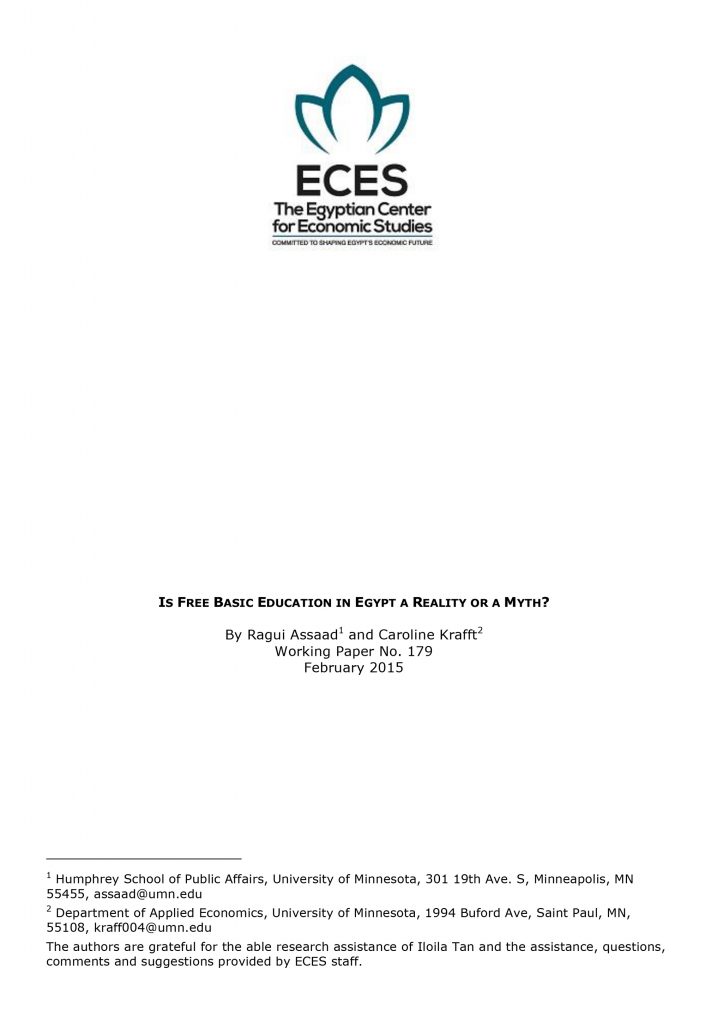Introduction:
Free education—promised in the Egyptian constitution—is considered a fundamental right of every Egyptian. Over the past three decades, Egypt has made substantial progress in increasing access to education and raising educational attainment. Gross enrollment rates in primary education have increased from 67 percent in 1980 to 112 percent in 2010 (World Bank 2014). At the same time the average years of schooling went from 2.7to 7.1, putting Egypt among the top 20 countries globally in terms of increases in school attainment over that period (Campante and Chor 2012). The focus in Egypt, as in many countries and in the international discourse on access to education, has essentially been on increasing enrollments and attainment, often to the neglect of other important dimensions of education. There has been, until recently, insufficient concern about the demonstrably low school quality and low levels of learning students are achieving (Assaad 2014; Salehi-Isfahani, Hassine, and Assaad 2014; World Bank 2008). There has also been limited societal debate about the substantial inefficiencies and inequities associated with public expenditure on education (El-Baradei 2013). These issues mean that while education is theoretically free, substantial additional spending is often required by families to ensure that children learn and succeed within the education system. The need for additional spending contributes to young people‘s unequal opportunities to attain education or achieve learning (Assaad, Salehi-Isfahani, and Hendy 2014; Assaad 2013; El-Baradei 2013; Salehi-Isfahani, Hassine, and Assaad 2014; World Bank 2012).

